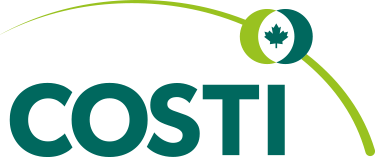Canadian Adult Achievement Test (CAAT) - Level C and D
The Canadian Adult Achievement Test (CAAT), is a multiple choice test administered to determine equivalence to Canadian education from grades 1 to 12 for those seeking apprenticeship or as requested by some trade unions or employers as a requisite for promotion or employment.
Services Available
The Canadain Adult Achievement Test consists of multiple choice questions on English, Mathematics, and Science. Results are provided in writing.
Staff at this location speak Amharic, Arabic, Cantonese, English, Farsi, French, Italian, Kurdish, Mandarin, , Somali, Spanish, and Turkish.
Who is Eligible
Services are available to Canadian citizens, landed immigrants, convention refugees, refugee claimants, and holders of a vaild work permit, approved by Citizenship and Immigration Canada. Students must be 18 years of age or older.
Program Intake
The test is administered every Tuesday.
Times
9:30 am to 3:30 pm
This Program is Located at:
760 College Street
Toronto, ON M6G 1C4
Phone: 416.534.7400 | edu@costi.org
There is a $70 service fee for the CAAT test.
Related Resources
View Workshop Calendars
Cross-Cultural Awareness
Intercultural understanding is often challenging due to the differences in verbal and non-verbal communication. Some factors include misunderstandings, false assumptions, misinterpretations, discomfort at being around certain culture-specific behaviours and habits, and more importantly, lack of knowledge in how to address these concerns in an effective and sensitive manner.
Differences may be overt, such as dress code, or such as coming from a culture where taking initiative is considered aggressive. Differences can also be seen in corporate structure. In one culture, a job title may explain hierarchy within an organization. A title may also have different functions within different organizations.
Overcoming cultural differences involves awareness, knowledge, and skills.
Awareness: Being aware that your mentor may be acting or speaking contrary to your expectations simply due to their own cultural norms and language interpretation.
Knowledge: Applying your understanding of cultural differences to resolve both obvious and not so obvious culture-bound situations you may be in.
Skills: Bringing together your awareness that cultural differences exist and the knowledge that you may be acting in a culture-specific way and applying positive regard, communication and non-judgmental listening.201
Language and Settlement Issues
Feelings of isolation and feeling like you don’t belong
Dealing with conflicting work and family responsibilities while trying to attend English language studies
Accessing outreach programs, programs to help you understand the Canadian culture
Getting in touch with community groups that share your language or culture
Accessing social services
Enrolling your children in school
Securing housing
Finding a job202









